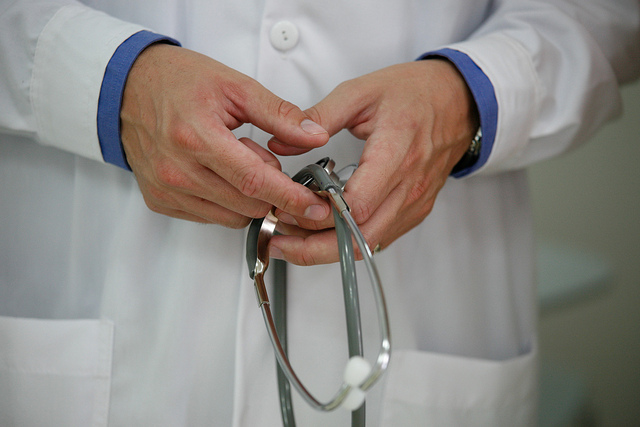A recent editorial published in JAMA Psychiatry responds to a randomized controlled trial (RCT) examining the metabolic effects of second-generation antipsychotics (SGA) in young people. In the RCT, the researchers monitored the metabolic effects of antipsychotics (aripiprazole, olanzapine, and risperidone) in a group of nonpsychotic youth diagnosed with behavioral disorders. The results showed adverse metabolic effects across the 12 weeks with the most significant effects found for the antipsychotic olanzapine. The researchers associated these adverse effects on premature cardiometabolic morbidity and mortality.
“The potential psychiatric benefits of antipsychotic use in this population, evident in this trial and others, should be carefully weighed against the potential for childhood onset of abdominal obesity and insulin resistance that—compared with adult onset—further increases long-term risk for T2D, cardiovascular disease, and related conditions,” the researchers write.

In response to these results, De Hert, MD, PhD and Detraux, MPsy advocate for use of psychosocial interventions prior to prescribing SGAs for off-label use and monitoring adverse effects, particularly the metabolic effects, in children and adolescents taking these medications.
As the off-label use of antipsychotics in youth rises, De Hert and Detraux call for more cautious practice. De Hert and Detraux suggest the use of psychosocial interventions before the use of SGAs for off-label use.
“If antipsychotic medication is started, psychoeducation and healthy lifestyle advice are essential and can be helpful,” they write.
Screening for those who might be at a high risk of developing adverse metabolic effects, before starting children on antipsychotics is also encouraged. In addition, physicians should track weight, waist circumference, and peform routine glycemic measurement to detect those at risk of developing type 2 diabetes.
This is crucial given that “Antipsychotic medications can induce cardiometabolic abnormalities (obesity, hyperglycemia, and dyslipidemia) associated with an increased risk of cardiovascular disease and type 2 diabetes mellitus” and children placed on SGAs “ have a 2-fold to 3-fold increased risk of developing type 2 diabetes mellitus compared with SGA-naïve children.”
“In contrast to stable or progressive reductions in percentage body fat observed in the general pediatric population across the age range in this study, increases in whole-body and abdominal adiposity were observed in all treatment groups,” the researchers write. “Although the absence of a placebo group prevents experimental clarity on whether within-group changes are attributable to antipsychotic treatment, no prior evidence suggests that rapid onset, adverse changes in adiposity and insulin sensitivity are associated with normal childhood or untreated disruptive behavioral disorders.”
Moreover, the authors stress that “although no SGA regimen is absolutely free from metabolic consequences,” prescribers should opt for the SGA with the lowest risk and the shortest duration of treatment. Further, in the case of off-label prescribing, SGA’s should only be an option after psychosocial interventions have been tried. In addition, this new RCT had a short duration, limiting our knowledge of the long-term effects of these medications.
****
Nicol, G. E., Yingling, M. D., Flavin, K. S., Schweiger, J. A., Patterson, B. W., Schechtman, K. B., & Newcomer, J. W. (2018). Metabolic effects of antipsychotics on adiposity and insulin sensitivity in youths: a randomized clinical trial. JAMA psychiatry. (Link)















Saddening.
Report comment
Studies on SGA’s are notorious for ignoring their long term effects. If they do cause long term harm (which they do) they can always say the patient developed a new psychiatric illness and up the dose.
Report comment
Or claim that it’s due to “lifestyle choices” and avoid any scrutiny of their beloved substances.
Report comment
Interesting that the adverse effects showed up so early. We all know olanzapine chubs people out but within 12 weeks is going some.
You have to wonder what on earth psychiatrists think they are doing. Prescribing off label, not just in age but also in application. How can non psychotic youth be given an antipsychotic? And they will max out the dose because of course these drugs are inneffective at making people better.
And the deceitful codswallop that goes with it:
“Well I think you could put on a bit of weight”
“20mg olanzapine is a small dose”
“You take them for a while , like antibiotics”
“We can medicate those bad thoughts and emotions”
“They normalize a chemical imbalance”
The sedative and weight gain properties are the main mode of action. Any mental improvement is a rather hopeful side effect , and the more studies you look at the suspiciously smaller it becomes.
Psycho social is what these troubled folk need, from the family , community, hobby groups and psychologists.
Report comment
I gained 15 pounds in 2 weeks on haldol. I was slim to begin with, so doctors didn’t worry. But I had all the symptoms of diabetes. There is not enough concern about diabetes in America. I think doctors are mostly overwhelmed just trying to treat the most severe cases, and let the developing ones slide.
Report comment
The only “potential psychiatric benefits of antipsychotic use in this population,” “nonpsychotic youth diagnosed with behavioral disorders,” is profit, for psychiatrists who want to profiteer off of destroying children’s lives.
Especially since the antipsychotics will make these non-psychotic children psychotic, via anticholinergic toxidrome. But the psychiatrists claim to not know this, despite being taught back in med school that both the antidepressants and antipsychotics will indeed make people psychotic, “mad as a hatter,” via anticholinergic toxidrome.
https://en.wikipedia.org/wiki/Toxidrome
“‘If antipsychotic medication is started, psychoeducation and healthy lifestyle advice are essential and can be helpful,’ they write.” Is this true? Not according a recent MiA article that spoke of the failure of attempts to encourage exercise, in those forced to take these drugs.
“’Antipsychotic medications can induce cardiometabolic abnormalities (obesity, hyperglycemia, and dyslipidemia) associated with an increased risk of cardiovascular disease and type 2 diabetes mellitus’ and children placed on SGAs ‘have a 2-fold to 3-fold increased risk of developing type 2 diabetes mellitus compared with SGA-naïve children.’”
It’s sadly ironic that the ‘behaviors’ that result in the prescribing of these antipsychotics, are “real diseases, just like diabetes,” according to the psychiatrists.
“… prescribers should opt for the SGA with the lowest risk and the shortest duration of treatment.” No, prescribing these neurotoxic drugs to children should be made illegal. Although prescribing the antipsychotics to people of all ages should be made illegal.
Report comment
One thing I have not yet encountered, is research in how long these metabolic problems persist. I was on antipsychotics as a young person, although I was not psychotic. I swiftly developed metabolic changes. My numbers were not off the charts, and I was young, so doctors ignored them, yet the symptoms were very severe.
I’ve been off all drugs for 3 years. The last 5 years I was on drugs, I was only on a tiny weaning dose. Yet I still cannot consume any carbohydrates without medication, or I get diabetes symptoms. It puzzles me, because technically I am in the prediabetic range. But if I miss the diabetes medication or eat, say, and extra piece of fruit, I will fall into a stupor, and spend the next few days with frequent urination, eye pain and dryness, and nerve pain. I half wonder if there is something about these drugs that not only induces diabetes, but makes us more sensitive, so that what might be a mild case actually feels quite severe.
Report comment
Is the “I’m next to God” pediatric psychiatrist Dr. Joseph Biederman (he who invented the diagnosis of pediatric bipolar disorder so as to push Risperdol on innocent children) still practicing at Harvard?
Remember little Rebecca Riley, dead of Risperdol and polypharmacy at age around four years old, medication given by a physician who learned under Biederman.
Report comment
What can be discovered about the details of Rebecca Riley’s case? Are they sealed? Why was she targeted with all that harm? It sounds as though she must have been isolated within the narrow boundaries of the allopathic paradigm that neglects the functional-holistic needs of the patient. Was she an orphan with no known relatives? What year was that? So, no one knew she was missing from “life” because she had never belonged to a neighborhood, or to a loving and protective care giver? She would seem to be a big temptation to a research psychiatrist who would eventually have the opportunity to observe her post-mortem brain. In her childhood ignorance of the greater evil context, did she ever feel loved by her caregivers?
Report comment
They are so tepid in their recommendations! They SHOULD be saying, “Prescription of SGAs causes almost instant disruption of metabolic function and weight gain is substantial in just 20 weeks. These drugs should NEVER be prescribed to children except in the most dire of circumstances, and if they are, children should be weaned off of them as quickly as possible. The dangers far outweigh any benefits, especially for off-label prescribing.”
Or they could go with, “These drugs are dangerous – don’t prescribe them to anyone!”
Report comment
I’m glad you published the article, Steve, and made excellent comments. Reading it angers me because all the cautionary advice for screening for contraindications against using SGA gives an impression that seems to be a sham because hospitals do whatever they want and will use false info to get permission to do it. You are right, Steve, the damage happens incredibly fast. We parents had to stomach that sick feeling of apprehensive hope that we could stop the oppression soon enough to salvage Catherine’s quality of life. We all had to walk that doomed path with her that was so humiliating, degrading, distorting for her. We were not enough to rescue her. I can’t speak for Russ, but I know I was intimidated by the power imbalance and was never trained to fight like a lawyer, and the hospitals don’t give you any more info than they have to do. They will run out a clock in a meeting with no substance if you are not sure what you need to do. Some meetings went better than others, but the end result insults Lady Justice.
Report comment